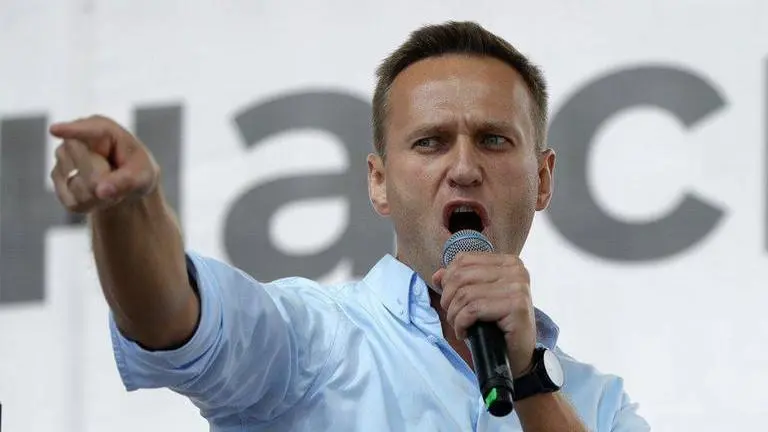Updated 12 September 2020 at 11:28 IST
Novichok group toxin used on Navalny 'harder' than previous forms: Report
The nerve agent from the Novichok group used to poison Russian opposition leader Alexei Navalny was “harder” than previous forms, a German magazine reported.
- World News
- 2 min read

The Soviet-style nerve agent from the Novichok group used to poison Russian opposition leader Alexei Navalny was “harder” than previous forms, a German magazine reported. According to Der Spiegel, Germany’s foreign intelligence service informed in a “secret meeting” that the strength of the toxin indicates the possible involvement of Russian President Vladimir Putin in the case.
Bruno Kahl, president of the Federal Intelligence Service (BND), reportedly said that the more complex and rarer the chemical composition of the poison, the more likely involvement of Kremlin in the poisoning of Putin’s critic. German health authorities had earlier confirmed the poisoning of Navalny with a nerve agent from the Novichok group, citing toxicological test results.
Navalny has been removed from a medically-induced coma as his health condition improved. Berlin’s Charité University hospital said in a statement that the Kremlin critic, who fell unconscious during a flight due to alleged poisoning and was transferred to the hospital on August 22, will be gradually taken out of the ventilator support.
Advertisement
Calls for probe and accountability
The United States told the UN Security Council on September 10 that it work with allies to hold people accountable for the poisoning of Kremlin critic Alexei Navalny, including through “restricting funds for malign activities.” Cherith Norman Chalet, the deputy US ambassador to the United Nations, told the council that the Russian people have a right to express their views without fear of retribution of any kind.
Advertisement
Norman Chalet urged Russia to be fully transparent cooperate with the international community’s probe into this latest attack. The ambassador reiterated that the use of chemical weapons presents an “unacceptable security threat” to all states, urging the members of the Council to not stay silent.
Russia has vehemently denied its involvement in the poison attack and asked Germany to share evidence to prompt an investigation. Russian ambassador to UN, Vassily Nebenzia, told the 15-member council that the doctors who initially treated Navalny and “saved” his life did not find any chemical weapon substances in his analyses.
(Image credit: AP)
Published By : Kunal Gaurav
Published On: 12 September 2020 at 11:28 IST
